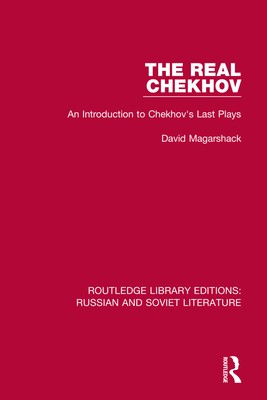
- We will send in 10–14 business days.
- Author: David Magarshack
- Publisher: Routledge
- ISBN-10: 0367726513
- ISBN-13: 9780367726515
- Format: 15.6 x 23.4 x 1.4 cm, minkšti viršeliai
- Language: English
- SAVE -10% with code: EXTRA
Reviews
Description
What is Chekhov's method of ensuring audience participation? What does his stage direction 'through tears' mean? What happens between the first and second acts of The Seagull? Is there any reason for the despondency in Chekhov's drama? This book, first published in 1972, discusses these questions and many other issues around Chekhov's last four plays. David Magarshack, the leading translator and biography of many of Russia's greatest writers, closely examines Chekhov's work for the relevant facts about his writing, and demonstrates that no reliance should be placed on the so-called subtext which can introduce all sorts of irrelevancies arising from pre-conceived ideas about the plays. A careful reading of Chekhov's text itself is all that is needed to correct the familiar distortions of his characters and themes.
EXTRA 10 % discount with code: EXTRA
The promotion ends in 21d.06:28:25
The discount code is valid when purchasing from 10 €. Discounts do not stack.
- Author: David Magarshack
- Publisher: Routledge
- ISBN-10: 0367726513
- ISBN-13: 9780367726515
- Format: 15.6 x 23.4 x 1.4 cm, minkšti viršeliai
- Language: English English
What is Chekhov's method of ensuring audience participation? What does his stage direction 'through tears' mean? What happens between the first and second acts of The Seagull? Is there any reason for the despondency in Chekhov's drama? This book, first published in 1972, discusses these questions and many other issues around Chekhov's last four plays. David Magarshack, the leading translator and biography of many of Russia's greatest writers, closely examines Chekhov's work for the relevant facts about his writing, and demonstrates that no reliance should be placed on the so-called subtext which can introduce all sorts of irrelevancies arising from pre-conceived ideas about the plays. A careful reading of Chekhov's text itself is all that is needed to correct the familiar distortions of his characters and themes.


Reviews